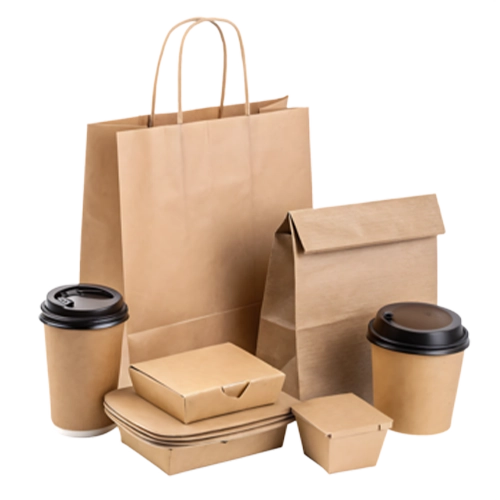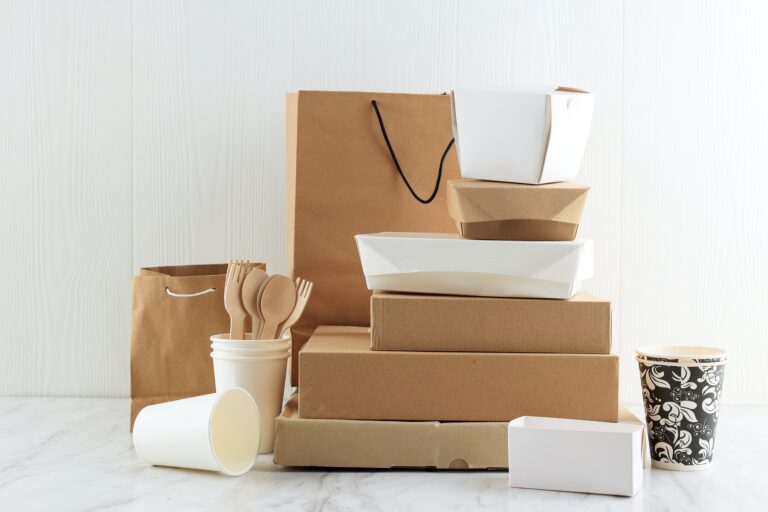Recycling vs Composting are two of the most popular eco-friendly habits adopted by individuals and communities worldwide. Both practices help reduce landfill waste, conserve natural resources, and support a healthier planet. At first glance, they might seem like equally beneficial solutions to the same problem.
But if you are trying to choose between them, things get less clear. Should you focus on separating plastics and paper, or turn your kitchen scraps into nutrient-rich soil? Which method fits better with your lifestyle, home environment, and long-term sustainability goals?
This article will walk you through the essential differences between recycling and composting, comparing their processes, benefits, and challenges—so you can confidently decide which one works best for you, or how to integrate both into your daily routine.
What is Recycling?
Recycling is the process of collecting, processing, and repurposing materials that would otherwise be thrown away as trash. It involves collecting, sorting, cleaning, and reprocessing items that would otherwise be discarded into landfills or incinerators. These materials are transformed into new products, reducing the need for virgin resources and diverting waste from landfills.
This system has evolved significantly in recent decades. Once a grassroots initiative, recycling has become institutionalized, with many cities and towns offering curbside pickup, designated drop-off points, and educational campaigns. However, not all recycling systems are created equal, and the success of recycling depends heavily on proper sorting, consumer education, and the local infrastructure’s capability to process materials.

Benefits of Recycling
Recycling offers significant environmental, economic, and social benefits that make it an essential component of sustainable development.
- Environmental Conservation: Recycling reduces the need to extract, refine, and process raw materials, which lowers air and water pollution. For instance, recycling aluminum saves up to 95% of the energy needed to produce it from raw ore.
- Waste Reduction: By diverting waste from landfills and incinerators, recycling reduces the volume of garbage that contributes to soil, air, and water contamination. This helps extend the life of existing landfill sites and reduces the need to develop new ones.
- Energy Savings: Producing goods from recycled materials typically requires less energy than manufacturing from virgin materials. These energy savings translate to fewer greenhouse gas emissions, playing a role in fighting climate change.
- Economic Growth: Recycling generates jobs in the collection, sorting, and processing of materials. It also fosters innovation by encouraging the development of sustainable materials and green technologies.
- Public Awareness and Participation: Regular participation in recycling fosters environmental consciousness. It reminds individuals that their choices affect the planet, thus promoting more mindful consumer behavior.
What is Composting?
Composting is the natural decomposition of organic matter into an earthy substance called humus or compost. This process mimics the way nature recycles organic matter and returns nutrients to the soil. At its core, composting is the controlled decomposition of organic matter by microorganisms under aerobic (oxygen-rich) conditions.

Benefits of Composting
The benefits of composting are far-reaching and profoundly impact ecosystems, waste management systems, and individual households.
- Landfill Diversion: Organic waste makes up a large portion of municipal solid waste. Composting diverts food scraps, yard waste, and other biodegradable materials from landfills, significantly reducing the total volume of waste.
- Soil Health Improvement: Compost is rich in nutrients and beneficial microbes that improve soil structure, moisture retention, and fertility. This leads to healthier plants, increased crop yields, and reduced reliance on chemical fertilizers.
- Reduced Need for Chemical Fertilizers: Compost contains essential nutrients that help plants grow. Using compost reduces the dependence on chemical fertilizers, which can leach into waterways and cause harmful algal blooms.
- Cost Savings: For gardeners, farmers, and homeowners, composting offers a free or low-cost alternative to commercial soil amendments. Municipalities can also save on landfill maintenance and waste collection costs.

Recycling vs Composting: The Difference
To make a fair comparison between recycling vs composting, it’s helpful to break down their distinctions across several practical and environmental dimensions.
1. Materials
- Recycling: Suitable for inorganic, synthetic, or processed materials—plastics, metals, paper, and glass. These items do not decompose naturally and require industrial intervention.
- Composting: Ideal for organic materials—food scraps, yard waste, paper towels, and certain biodegradable packaging. These naturally break down into nutrient-rich matter.
2. Practicality
In terms of practicality, the choice often comes down to lifestyle and location.
- Recycling: Generally easier due to widespread municipal pickup programs. Most urban and suburban areas provide bins and scheduled pickups.
- Composting: Requires more personal involvement. Though simple home systems exist, it takes effort to manage moisture, aerate piles, and balance carbon-to-nitrogen ratios. In some areas, municipal compost collection is also available, making the process easier.
3. Environmental Impact
- Recycling: Reduces demand for raw materials and lowers industrial pollution. It helps conserve finite resources like metals and fossil fuels.
- Composting: Decreases methane emissions from landfills and enriches soil, aiding in carbon sequestration and reducing the need for synthetic fertilizers.
If the goal is to lower greenhouse gas emissions, composting organic waste is more effective than sending it to landfill, even if the landfill has gas capture technology.
4. Estimated Time
- Recycling: Fast once materials reach processing centers. However, collection and sorting can delay processing.
- Composting: Varies from a few weeks (hot composting) to several months (cold or vermicomposting). Speed depends on the method, material mix, and maintenance.
5. Challenges
- Recycling Challenges: Contamination is a significant issue. When non-recyclables are placed in bins, it can render entire batches unrecyclable. Confusion over symbols (e.g., resin codes on plastics) leads to misuse.
- Composting Challenges: Requires knowledge, balance, and upkeep. Piles can become too wet or dry, attract pests, or take too long if mismanaged.
6. Economic Impact
- Recycling: Requires industrial facilities, transportation, and labor. However, recycled materials can be sold, and the process can generate jobs. It also saves energy and reduces disposal costs.
- Composting: Can be low-cost if done at home. Municipal programs require investment but often yield savings through reduced landfill use and environmental services (like stormwater management due to healthier soils).
In communities with landfill space shortages, composting organic waste can significantly delay the need for expensive new waste infrastructure.
Recyclable and Compostable Items
Some items are recyclable. Others are compostable. A few are neither. And some straddle the line, creating confusion.

Here’s a breakdown of commonly confused products and how they should be handled:
| Item | Recyclable | Compostable | Notes |
|---|---|---|---|
| Paper napkins (clean) | No | Yes | Best added as a brown (carbon) source in compost |
| Cardboard (clean) | Yes | Yes | Can go either way, recycle if clean, compost if shredded |
| Pizza boxes | No | Yes | Compost greasy boxes, recycle clean lids |
| Coffee grounds | No | Yes | Excellent for compost |
| Plastic water bottles | Yes | No | Rinse before recycling |
| PLA bioplastic utensils | No | Maybe | Only compostable in industrial facilities |
| Fruit peels | No | Yes | Compost all food scraps |
| Tin cans | Yes | No | Fully recyclable when rinsed |
| Paper towels (used) | No | Yes | Compost if used with water or food, not chemicals |
| Yard waste | No | Yes | Ideal for compost piles |
FAQs
- What is better for the environment: recycling or composting?
Both are essential, but composting often has a lower carbon footprint if done locally. Recycling is better for managing non-biodegradable materials. - Can I compost and recycle at the same time?
Absolutely. It’s the best way to manage both organic and synthetic waste responsibly. - How do I avoid pests in my compost?
Don’t add meat or dairy, and keep your bin covered. Turn it regularly for proper aeration. - Why can’t all plastics be recycled?
Different plastics have different chemical compositions. Some aren’t economically or technically feasible to recycle. - Does recycling require much energy?
Yes. But significantly less than producing new materials. Composting, especially at home, uses minimal energy. - Is home composting smelly?
If managed well (balanced greens and browns, aeration, moisture control), compost smells like forest soil—not unpleasant.
Conclusion
Choosing between recycling vs composting doesn’t have to be an either-or decision. These eco-practices aren’t rivals but allies in the war against waste. Composting handles what nature makes; recycling takes care of man-made materials. Together, they significantly reduce landfill use, lower greenhouse gases, and conserve resources.







